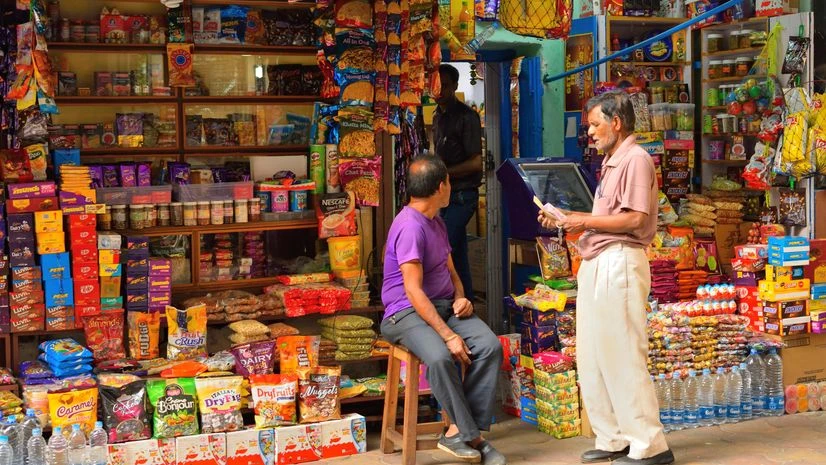The Indian FMCG industry has always been a dynamic playground for creativity, innovation, and consumer engagement. In 2025, brands across India have elevated their marketing strategies, embracing digital transformation, sustainability, and emotional storytelling to capture the hearts of millions. This article explores some of the most impactful Indian FMCG marketing campaigns of 2025 and highlights how leading Indian advertising agencies are reshaping the landscape of consumer communication.
1. Evolution of FMCG Marketing in India
The FMCG sector in India has seen a paradigm shift in recent years. From traditional television ads to influencer-led digital storytelling, brands are adopting omnichannel strategies to stay relevant. The year 2025 notably marked a move toward purpose-driven marketing, with campaigns focusing on eco-consciousness, inclusivity, and authenticity.
According to Indian advertising agency news, several FMCG giants have collaborated with top agencies to deliver memorable campaigns that blend data, creativity, and cultural resonance. The result? Marketing that not only sells products but builds long-term emotional connections with consumers.
2. Case Study 1: HUL’s “Reimagine Clean” Campaign
Hindustan Unilever Limited (HUL) launched its “Reimagine Clean” campaign in early 2025, focusing on sustainability and innovation in personal and home care products. The campaign highlighted how cleanliness goes beyond hygiene — encompassing responsibility toward the planet.
Through a mix of digital storytelling and influencer partnerships, HUL created awareness about eco-friendly packaging and water-saving solutions. The campaign’s success lay in its simplicity and strong emotional appeal, making it one of the most discussed case studies of Indian FMCG campaigns in 2025.
3. Case Study 2: ITC’s “India on the Move” Initiative
ITC’s 2025 campaign, “India on the Move”, celebrated the spirit of modern India. The campaign positioned ITC as a brand that empowers progress through everyday essentials — from foods to personal care.
Using immersive storytelling across OTT platforms, YouTube, and regional media, ITC reached over 50 million consumers. The campaign’s success reflected the power of localized content — a recurring theme in the latest campaigns in India this year.
4. Case Study 3: Dabur’s “Rooted in Nature” Digital Push
Dabur, a brand synonymous with Ayurveda, took a modern twist with its “Rooted in Nature” campaign. The 2025 initiative focused on transparency, showing consumers exactly how products are made and sourced from nature.
The campaign leveraged AR filters, YouTube shorts, and interactive storytelling to engage Gen Z and millennial audiences. Dabur’s collaboration with a leading Indian advertising agency helped reinforce trust and authenticity — values increasingly sought by consumers in the FMCG space.
5. Case Study 4: Amul’s Topical Marketing Continues to Shine
Amul continued its reign as India’s most loved brand by maintaining relevance through witty topical advertising. In 2025, Amul’s digital team transformed its iconic billboard-style content into animated social media stories.
Their quick reactions to trending events, cricket moments, and social issues ensured constant engagement. As noted in Indian advertising agency news, Amul’s strategy demonstrates how consistent branding and humor remain timeless marketing tools.
6. Key Learnings from 2025 FMCG Campaigns
The case studies of Indian FMCG campaigns in 2025 reveal a few common success factors:
- Authentic storytelling: Brands that connected emotionally achieved higher recall.
- Digital-first approach: Leveraging influencer marketing, reels, and AI-powered personalisation became essential.
- Sustainability as a core message: Eco-conscious branding resonated deeply with younger audiences.
- Regional and cultural focus: Localised campaigns ensured inclusivity and reach across India.
7. Conclusion
The year 2025 has proven that the Indian FMCG market is no longer about mass advertising — it’s about meaningful engagement. Brands like HUL, ITC, Dabur, and Amul have set new benchmarks in creativity and consumer connection.
As the latest campaigns in India continue to redefine marketing excellence, one thing is clear — the collaboration between FMCG brands and innovative Indian advertising agencies will keep pushing boundaries. The future of FMCG marketing lies in storytelling that’s not only smart and digital but also deeply human.
You may also like
-
Connectivity and Community: The Strategic Location of Prateek Grand City and Its Impact on Residents’ Lifestyle
-
The Power of International Volunteering
-
Powering Growth: How the MRO Supply Chain Drives Industrial Success
-
Metal Casting: The Timeless Engine of Modern Manufacturing
-
Keeping Singapore’s Skies Moving: Proponent’s Role in Reliable Aviation Support

